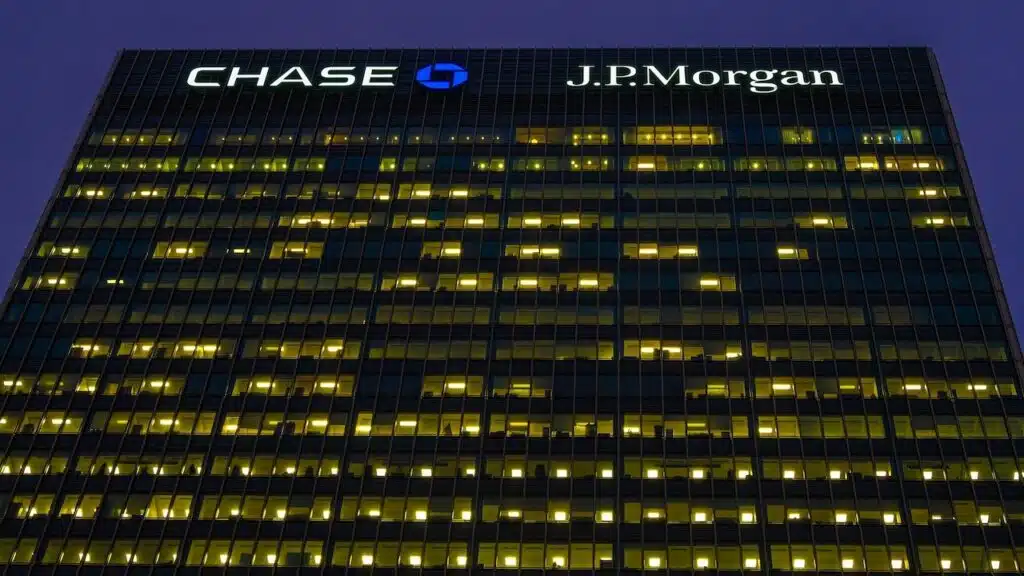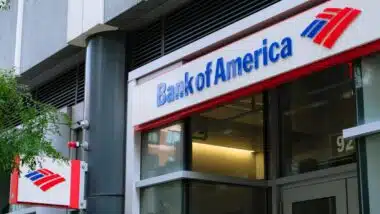
Interest rates class action lawsuit overview:
- Who: Two consumers filed a class action lawsuit against JPMorgan Chase, Bank of America, Wells Fargo, Citibank, U.S. Bank, PNC Bank and Truist Bank.
- Why: The lawsuit alleges the banks colluded to fix interest rates on consumer and small-business loans for more than 30 years.
- Where: The lawsuit was filed in a Connecticut federal court.
A pair of consumers filed a new class action lawsuit against some of the nation’s largest banks, alleging they colluded to fix interest rates on consumer and small-business loans for more than 30 years.
The lawsuit, filed Oct. 16 in a Connecticut federal court, names JPMorgan Chase, Bank of America, Wells Fargo, Citibank, U.S. Bank, PNC Bank and Truist Bank as defendants.
The plaintiffs, Tracy Normandin and J. Allen Sensabaugh, allege the banks conspired to fix, raise and stabilize interest rates on a massive number of loans by agreeing on the prime rates they charged their most creditworthy customers.
According to the lawsuit, the banks’ collusive prime rates were then reported by The Wall Street Journal as the “WSJ Prime Rate,” which serves as a component of the interest rate on trillions of dollars in variable-rate loans.
The class action lawsuit alleges the banks’ conspiracy artificially inflated interest rates for millions of loans explicitly tied to the WSJ Prime Rate, including home equity lines of credit (HELOCs) and consumer credit cards.
The plaintiffs argue that the banks’ collusion eliminated competitive variation in prime rate spreads, resulting in a fixed spread of 300 basis points over the Federal Reserve’s target rate for more than three decades.
As a result, the plaintiffs claim they paid supracompetitive interest rates on their WSJ Prime-indexed loans and are seeking to recover damages for the alleged overcharges.
Lawsuit: Banks’ collusion began after WSJ changed reporting method
The class action lawsuit alleges the banks’ collusion began after The Wall Street Journal changed its method for reporting prime rates in 1992, which pushed banks to agree on a single consensus rate.
The plaintiffs claim this change made it easier for banks to coordinate prices and raise them marketwide, as the Journal’s new methodology identified WSJ Prime as the market consensus price.
The lawsuit also alleges the banks’ collusion was facilitated by the Federal Reserve’s decision to begin publishing explicit targets for the federal funds rate in 1994, which allowed the banks to peg their prime rates to these publicly available benchmarks.
The plaintiffs argue the banks’ conspiracy has persisted despite significant changes in the banking industry over the past 30 years, including regulatory reforms and the digital transformation of the industry.
As a result, the plaintiffs claim the banks’ collusion is a per se violation of federal antitrust laws and are seeking treble damages for the alleged overcharges.
In related news, another JPMorgan Chase class action lawsuit alleges the bank fraudulently solicited consumers to purchase credit card memberships by promising automatic credits for certain purchases but then failed to provide those credits.
What do you think of the allegations made in this interest rates class action lawsuit? Let us know in the comments.
The plaintiffs are represented by Peter Cherepanov, Patrick McGahan, Michael Srodoski, Erin Dennehy, Carmen Medici, Patrick Rodriguez, Karin E. Garvey and Matthew Perez of Scott+Scott Attorneys at Law LLP.
The JPMorgan Chase and major banks class action lawsuit is Normandin, et al. v. JPMorgan Chase Bank, N.A., et al., Case No. 3:25-cv-01749, in the U.S. District Court for the District of Connecticut.
Don’t Miss Out!
Check out our list of Class Action Lawsuits and Class Action Settlements you may qualify to join!
Read About More Class Action Lawsuits & Class Action Settlements:















69 thoughts onClass action accuses JPMorgan Chase, 6 other major banks, of fixing interest rates for decades
We carry our mortgage loan through Chase and the only credit card we have is through Chase. Are all chase customers affected by this?